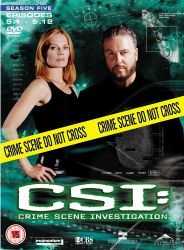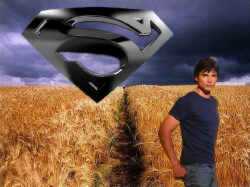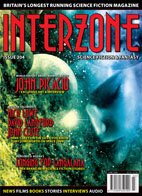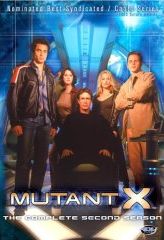
To start with, I don’t like Reeves & Mortimer…
TV stars Vic Reeves and Bob Mortimer have a comedy double-act that owes more to old style music hall and the moribund traditions of Morecambe & Wise than anything inspired by the postmodern lunacy of Monty Python… For the irritatingly clueless Vic and Bob, simply read Eric and Ernie: the next degeneration. With that in mind, I was not very keen on seeing the double act’s BBC remake of cult detective series Randall & Hopkirk (Deceased). The original, and very British, drama starred Mike Pratt as Jeff Randall, and Kenneth Cope as the late Marty Hopkirk, and the memorable show provided many hours of happy family viewing back in 1969-70. Later on, in that land of telly disambiguation, the USA, they re-titled the show My Partner The Ghost.
Two seasons (but with only 13 episodes in total) of the remake were first aired in the UK from 2000. In November 2006, Universal Playback finally released the complete four-disc DVD boxset (630 minutes, certificate 12). The programme makers retold the basic set-up of the 30-year-old original without much variation, and subsequent episodes find the dead and living nitwits (oh, sorry, private detectives) joined on their often-farcical investigations by Marty’s long-suffering fiancée Jeannie Hurst (talented Emilia Fox, briefly engaged to Reeves, before she came to her senses… and married actor Jared Harris). Of course, the new Jeannie might well be a wryly über-feminist romantic foil development from the original TV show’s (usually simpering) secretary - played by Australian blonde Annette Andre, but the Fox version’s blatant mimicry of Charlie’s Angels’ fondness for beating up bad guys, and numerous costume changes, is hardly much of an improvement on the sub-genre’s basic ‘pretty female sidekick’ characterisation. The addition of a fourth regular, Marty’s afterlife guru and mentor, Wyvern (Tom Baker), serves as little more than an excuse for streams of cheap visual effects allowing Hopkirk to ponce about in ‘Limbo’, every soulless minute of which is profoundly monotonous if compared to the quirky inventiveness of Tim Burton’s hilarious Beetlejuice.
Okay, so we have the white-suited ghost, the dodgy spin on familiar cross-genre riffs, and a lot more scenes for the heroine, but what - if anything - does this supposedly updated Randall & Hopkirk series have to offer TV viewers in the post-X-Files era? The painful truth is that it merely borrows, often carelessly and without the delicate balancing skills of astute genre parody, from the numerous homegrown chillers and horror movies of the 1970s. And so we get assignments to sinister hotels and haunted manors, a school under threat from a gang of evil boys, a weird murder in a museum, and a visit to an island of leery folk (albeit with a penchant for hormone-spiked ale), none of which really have a crumb of originality or a shred of credibility to add to the established canon of naff supernatural fantasy or even cheesy sci-fi adventures.
The best episode, Painkillers (as directed by the series’ producer and main scripter, Charlie Higson), features Derek Jacobi and Dervla Kirwan as mad doctors in a secret underground lab, where they’re on a quest for immortality, using a faux Amazon rainforest to cultivate a rare herb which delays pain by freeing the human psyche from its physical body. It’s all of a dismally uninventive sameness, though, with scene thefts galore from familiar classic TV, harking back to Department S, The (New) Avengers, and The Champions.
My favourite bit of this entire series occurs in an early scene in the very first episode, Drop Dead… Guest star, Charles Dance, catches the incompetent pair spying on him and, with slapstick verve, repeatedly slams Vic Reeves head against the back of their getaway car. How I laughed, but wished that I could have had Mr Dance’s job for that particular scene!










